Dear Lifehacker, I’ve heard that antibacterial soaps are bad for you, or at least that I should stop using them. I always thought antibacterial must be good, but now people are saying they’re a waste of money and could be bad for me. What am I missing? Should I stop using them? Sincerely, No Germophobe, Just Curious
Photos by Denis Semenchenko (Shutterstock) and La Gorda (Shutterstock), Nick Nguyen, Andy Melton, Jill Kemerer, Peapod Labs.
Dear No Germophobe,
It’s true: antibacterial soaps, cleaners and other products are everywhere, and by their name alone you might think “oh, it’s antibacterial, so it must be good.” Well, the truth isn’t quite so clear-cut, and to get to the bottom of it, we need to first take a look at germs and what they do (or don’t do) for us, then check out some of the current science around antibacterial products in general and how effective they are.
We’re not here to settle the debate once and for all, but there is a growing consensus that you might want to think twice about using these products.
Don’t Be Too Afraid Of Germs
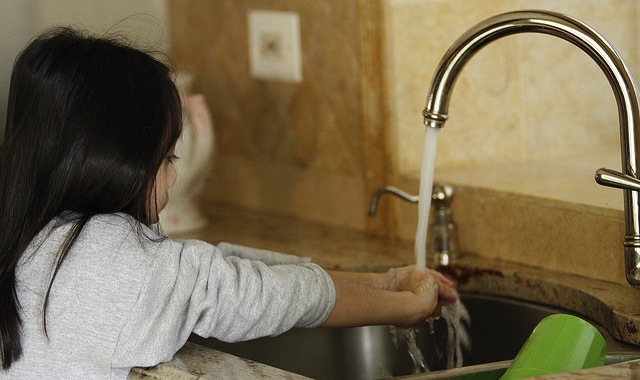
Germs make you sick, right? Absolutely — many germs, or bacteria and viruses and other microbial organisms, can cause infection and sickness in humans. Many others, however, don’t. Without getting into a longer discourse about the incredible microscopic flora and fauna that live with, on, and inside of our bodies and work diligently to keep us healthy and well, we can safely say that if your fear when you hear “germs” is that they’ll all make you sick and need to be eliminated to as great a degree as possible, you’re actually doing yourself a disservice.
In fact, in our rush to embrace antibacterial cleaning products that allegedly keep us from getting sick, we may actually be minimising the contact our immune system would otherwise have with them — contact that’s necessary for our bodies to develop natural immunities and antibodies that really keep us healthy (this is called the hygiene hypothesis.) Additionally, there’s growing concern that antibacterial products may actually have the opposite effect to that intended.
Researchers at Johns Hopkins University published a study in the 2012 Journal of Allergy and Clinical Immunology where they found that children with high levels of triclosan, a common component in everything from cleaning products and toothpase to pizza cutters and countertops — anywhere “antibacterial” properties are marketed), were at significantly higher risk for developing seasonal allergies, food, drug and insect allergies, hay fever and other immune-related sensitivities.
Of course, correlation doesn’t equal causation, and the study’s researchers noted that the area warrant further study, especially due to the wide use of antibacterial products in western nations. However, they’re far from the first people to suggest that an over-reliance on antibacterial cleaning products may actually be more detrimental than helpful.
To be clear, none of this is any reason to wallow in filth and dirt. Proper hand-washing, food preparation hygiene, and overall cleanliness is important to good health and well-being. It’s simply important to remember that being too clean can create issues, just as not being clean enough can.
Antibacterials May Not Be As Effective As Advertised
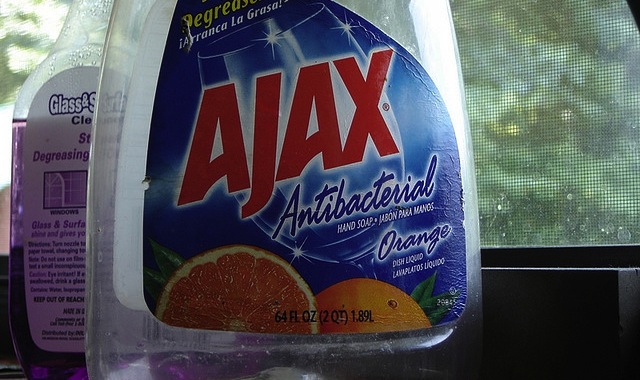
Beyond the idea that over-use of antibacterial cleaning products may contribute to immune illnesses and allergies, there’s a more practical reason you may want to stop spending money on them: They just don’t work as well as they claim to. As we mentioned when we said that water temperature isn’t terribly important when it comes to regular hand-washing (for sanitation, not for dirt or grime removal), the same study, published in The International Journal of Consumer Studies by researchers at Vanderbilt University, pointed out that antibacterial soap simply isn’t more effective at removing bacteria than normal, proper hand-washing. In short, if you’re washing your hands properly (20 seconds, with soap, under water of any temperature) you remove just as much bacteria as if you replaced the soap with an antibacterial version.
It’s not just one study that points to this either. This study, published in The American Journal of Public Health, points to the same conclusion. The US Food and Drug Administration has finally wrapped up a series of 40-year studies into the efficacy of antibacterial products — specifically the use of triclosan — and has concluded that they’re not as effective as manufacturers claim they are. They’ve gone so far as to insist manufacturers prove to US authorities that they are effective, or else remove it from their products.
The issue here isn’t with triclosan — it is an effective antibacterial and is often used in hospitals. The problem is that when it’s used in applications that generally don’t need antibacterial qualities — many researchers are concerned about microbial drug resistance to common antibacterials, or the fact that the more we over-use antibacterial products, the more resistant the bacteria become — something these researchers, publishing their findings in Biochemistry, and these researchers, published in Environmental Science and Technology, have already seen.
In short, by perhaps the most effective thing our current crop of antibacterial products are effective at is creating resistant bacteria. It’s a bit of a stretch, but not terribly so when you consider the wide range of products in which they’re applied when they don’t need to be.
That said, when you wipe down a countertop with an cleaning wipe that’s antibacterial, you’re definitely sanitising it. When you clean the toilet with antibacterial cleaner, it’s doing its job. There are definitely places where antibacterial cleaners are necessary — the toilet is reasonable, but embedded in your cookware, or the literally thousands of other products in which it’s used, may be a stretch.
Antibacterials Raise Health And Environmental Concerns
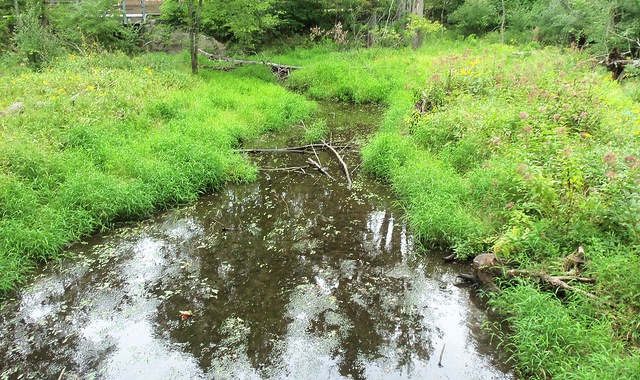
If the possibility that antibacterial products are less effective than advertised and may actually be helping develop resistant bacteria (that will pose an even greater health risk) isn’t enough to make you reconsider, here are two more. Remember earlier, when we mentioned that children with high levels of triclosan in their system were shown to be at higher risk of allergies of all types? The issue may be even deeper than just allergies. Preliminary research (and we do mean preliminary, so take this with a grain of salt) indicates that common antibacterials may be endocrine disruptors (which interfere with the normal function of the Thyroid, an organ that controls several important functions), and there’s some data to indicate triclosan can interfere with the skeletal and muscular systems as well, as the Smithsonian reports. Granted, all of this research is early, but the FDA has expressed its concern, and their effects would be farther-reaching than the allergy implications we’ve already seen.
Second, it turns out that the compounds used in most antibacterial products (again, triclosan being a primary culprit) may be harmful to the environment. Given that it’s easily absorbed through the skin and detected in humans (blood, urine, breast milk, it’s fat-soluble, so it builds up easily in human tissue), it perseveres pretty well in the environment and doesn’t break down too quickly. Mind the Science Gap goes into great detail about this. The journal Aquatic Toxicology notes that even small quantities persist in water treatment plants, and the USGS has found it often in surveys of streams and lakes. The same study in Aquatic Toxicology also notes that once present, it can disrupt algae’s ability to perform photosynthesis, which can spell big trouble for the food chain. Similarly, because it’s fat soluble, it can build up in other animals the same way it does in humans — something some researchers have already seen in dolphins. We can’t say we’ve seen a rise in dolphins with allergies though, and the other health issues require more research, but it is worth noting that an antibacterial agent that is of limited efficacy in many of its applications is persistent in the environment and growing in quantity.
The Bottom Line: What Should You Do?
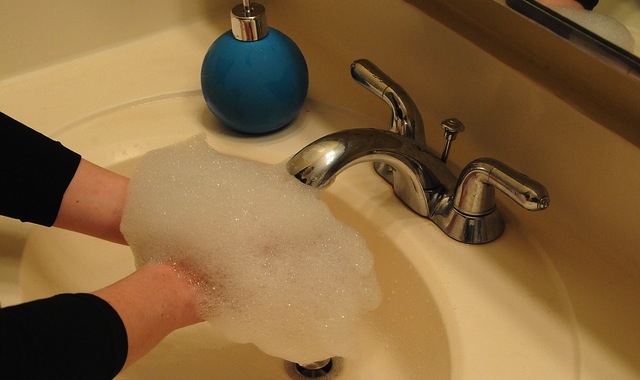
At the end of the day, antibacterial products have their place — just perhaps not in the soap you wash your hands with, or your shampoo, or your body lotion, or your socks or clothing items. Most researchers point out that you can save money by buying traditional versions of antibacterial products, and you won’t lose anything (or put yourself at any health risk) in the process. Wash your hands with regular soap, and opt-out of needlessly “antibacterial” products. In places where sanitation is necessary and alternatives can’t be used, antibacterial cleaners can be useful.
The Smithsonian suggests using a non-antibiotic hand sanitiser instead if you’re concerned, since they rely on alcohol and not antibacterial agents to clean your hands (hand sanitiser, by the way does not contribute to microbial resistance) and get the job done just as well. In hospitals and environments where sterility and sanitation are critical, antibacterials are necessary (and even then, generally controlled.) For the rest of us, common cleaners like bleach work wonders at sanitising surfaces, and for our bodies and clothing, soap and water are — as they always have been — your best friend.
Cheers
Lifehacker
Got your own question you want to put to Lifehacker? Send it using our [contact text=”contact form”].
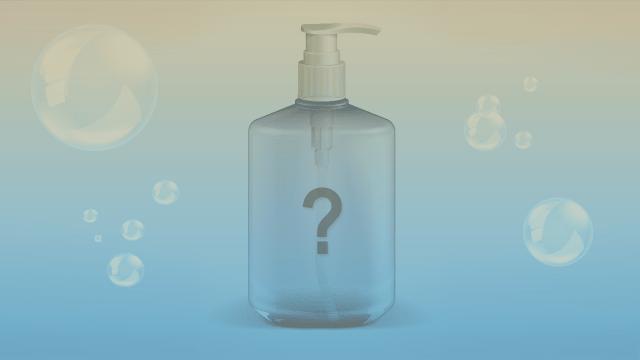
Comments
6 responses to “Ask LH: Should I Stop Using Antibacterial Soaps?”
What I was told was that a proper antibactirial needs something like 10 minutes to be effective. So when sanitising your toilet if you use a anti-bacterial product and then let it sit for 10 minutes then it will do what you want.
For anything that doesn’t sit on a surface for 10 minutes (like a hand wash) use a normal cleaner.
This was probably a simplified version of a complex subject but it made sense to me.
Not sure about the time frame, but you are correct in that most products require a certain “contact time” to be effective. The problem is a lot of these products aren’t used properly. Most people don’t know how to wash their hands and are unaware that you really need to make sure your hands are dry when you are finished. Otherwise, you just spread the germs.
Don’t know people disinfect their toilets…
your just gonna shit in it again in 5 minutes
I can see why you want it clean and white, but dinsinfected? pfffft!
I bought some toilet cleaner ysterday – have a look at them all, it is amazing, they cost from $3 to $8 a half litre! I bought the purple Earth’s Choice one, being the cheapest and hopefully friendliest to my drains and the Werribee treatment plant
god yes stop!
normal soap is all you need….unless Brian surgeon
very cool that you included that most are endocrine disruptors! there are also some that mimic estrogen’s so it feminizes you more. it’s the reason women have such irregular periods, high instances of period pain ect. There are estrogen mimickers in sooo much these days!
another thing is. Most cleaners are alcohol/harsh bases so when you use them you dry out/ crack your Sebum which is your natural defence against the very thing you are protecting! I try to tell serial hand sanitizes all the time. this one lady served 12 people in front of me, and every 2nd person she would Purell her hands! no shit! I told her all of this.
and another interesting fact. you know when surgeons get ready for surgery, they scrub in? well after 10 seconds from even those guys scrubbing in they start regrowing bacteria.
ppl need to chill!
The only thing i ever really get concerned with over cleaning is my hands, the cutting board/knives after cutting raw chicken, but i don’t use any anti-bacterial on it, just dish soap.